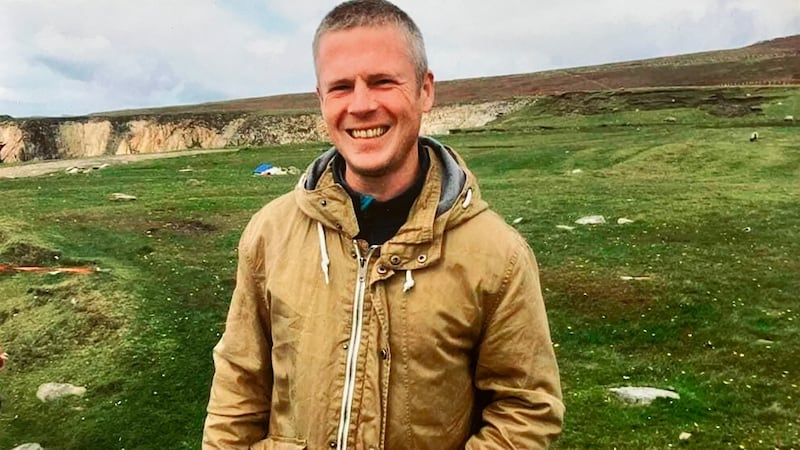When the 17th century medical physician Johannes Hofer coined the word “nostalgia” from the Greek nostos (return) and algos (pain), he was seeking to describe the intolerable sense of loss endured by Swiss mercenaries serving in foreign armies who missed their homeland. Hofer, who believed the condition manifested itself in physical brain trauma, described symptoms that included obsessive thinking of home, bouts of weeping, anxiety, palpitations and insomnia.
It was much later that the word’s meaning shifted to a yearning for a lost childhood, or for a culture that had disappeared or changed beyond recognition. Nostalgia also came to be associated with a bittersweet melancholia stimulated by a physical sensation from the past, most memorably the scent of Marcel Proust’s madeleines in In Search of Lost Time.
[ Does the Irishness of a film matter? No, except when it doesOpens in new window ]
In the 20th century, mass pop culture commodified nostalgia as a lucrative product aimed at well-to-do older consumers, which is why you’re being asked to pay the price of a small car for Bruce Springsteen tickets. More recently still, political analysts have identified nostalgia as a driver of reactionary political movements such as Trumpism’s Make America Great Again or Brexit’s Take Back Control. Lest that all seem too negative, psychologists have suggested that nostalgia is an essential and healthy part of human cognition, with an important role to play in maintaining mental health.
Ireland, it has been suggested, doesn’t do nostalgia. You won’t find much yearning for a lost golden age in our art and literature, presumably because such an age didn’t exist (the question of how other societies construct such idealised fables of their history is for another day). There’s never even much of an appetite for romanticised recollections of a simpler, better agrarian past. Instead, from JM Synge to Brian Friel and John B Keane, depictions oscillate between the equivocal and the brutal. In this telling we are utilitarian, unsentimental sorts, happy to slough off the trappings of native language or Catholic faith when they no longer seem useful.
READ MORE
Spare a thought for the White House speechwriters currently thumbing glumly through the collected works of Heaney and Yeats in search of fresh meat for their boss’s address to the Oireachtas and his speech in Mayo
Perhaps that’s true. But one very powerful, highly sentimental strain of Irish nostalgia does exist. It just doesn’t originate in Ireland. From the mid-19th century onward, waves of migration to the big cities of the US northeast created a market for drama, stories and songs lamenting the misery of Irish exile and usually declaring a fervent desire to “be back in [insert evocative name of townland here]”. There was also a lot of talk about mothers. As the 19th century became the 20th, these melodramas, comedies and songs migrated from the stage to the screen and the radio Irish-Americanness became a clearly defined strand of US – and therefore global – pop culture. Along the way, it was beamed back to the mother country where it was received with a mixture of bemusement, amusement and a keen awareness that there might be a few bob to be made from it. The naive returning Yank remains a recurring trope to this day (see RTÉ’s current comedy-drama Sisters).
All of which brings us to next week’s visit by Joseph Robinette Biden. The 46th president is almost certainly the last great avatar of a specifically Irish-American culture that is now in terminal decline. Unlike Obama or Reagan, his personal attachment to the Irish-American mythos runs deep and forms a core part of his personal brand. John Fitzgerald Kennedy, who had to navigate more politically treacherous waters 60 years ago, when anti-Irish, anti-Catholic sentiment was still a force to be reckoned with, did not make such regular use of his ethnic and religious background for domestic consumption.
Next week, therefore, is a big moment for traditional Irish America.
Spare a thought for the White House speechwriters currently thumbing glumly through the collected works of Heaney and Yeats in search of fresh meat for their boss’s address to the Oireachtas and his speech in Mayo, where, according to a spokesperson, he will “deliver an address to celebrate the deep, historic ties that link our countries and people”. And think too of the press flacks nervously keeping an ear out for a typically Bidenesque word flub, possibly conflating Irishness with drinkin’, fightin’ or, worst of all, hatin’ the British.
But Biden himself now embodies a powerful American nostalgia for an imaginary time when twinkly-eyed old Irish pols delivered for their blue-collar voters and cracked deals in smoke-filled rooms. In the era of Hunter Biden’s laptop, that vision looks a little frayed, and the extraordinary age at which this president will seek re-election seems symptomatic of a society unable to escape its past, but it’s probably enough to see off the far more malevolent revanchism of Magaworld. Not all nostalgias are equal.















